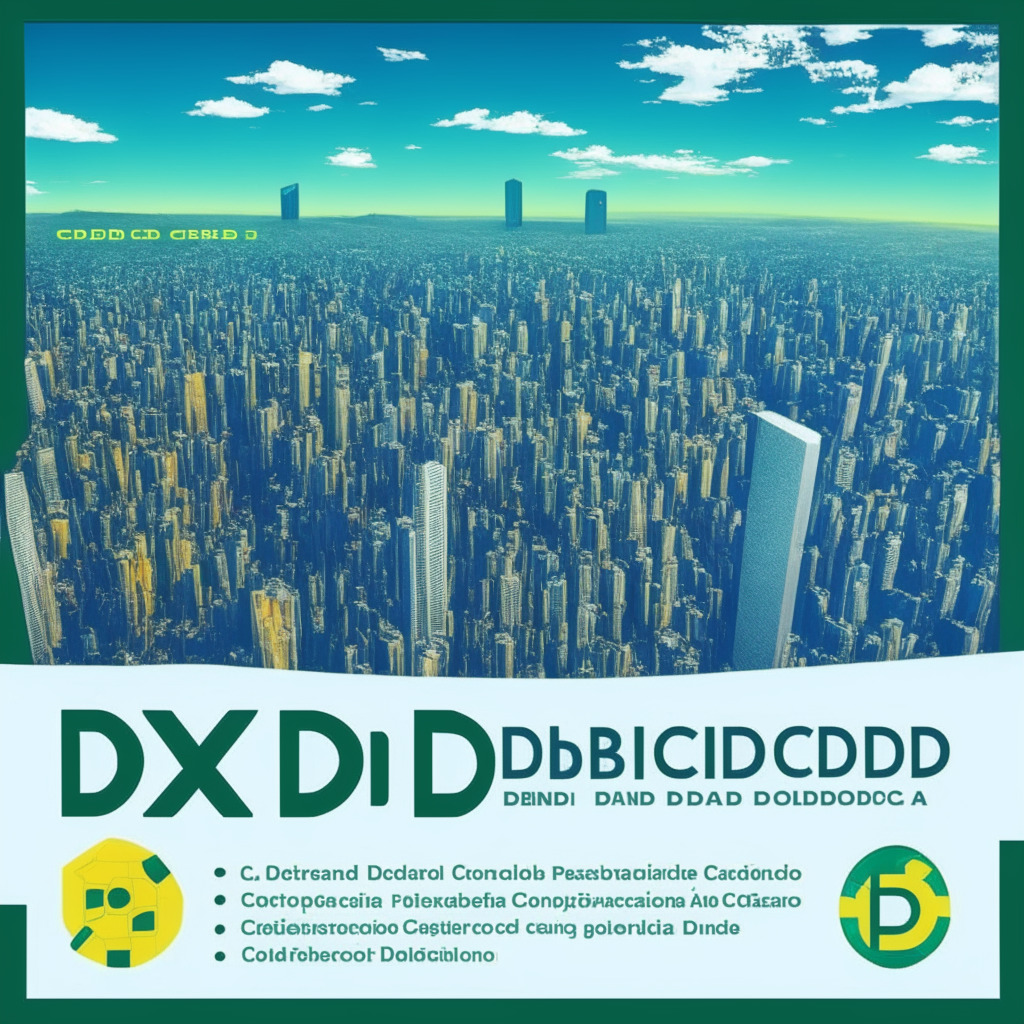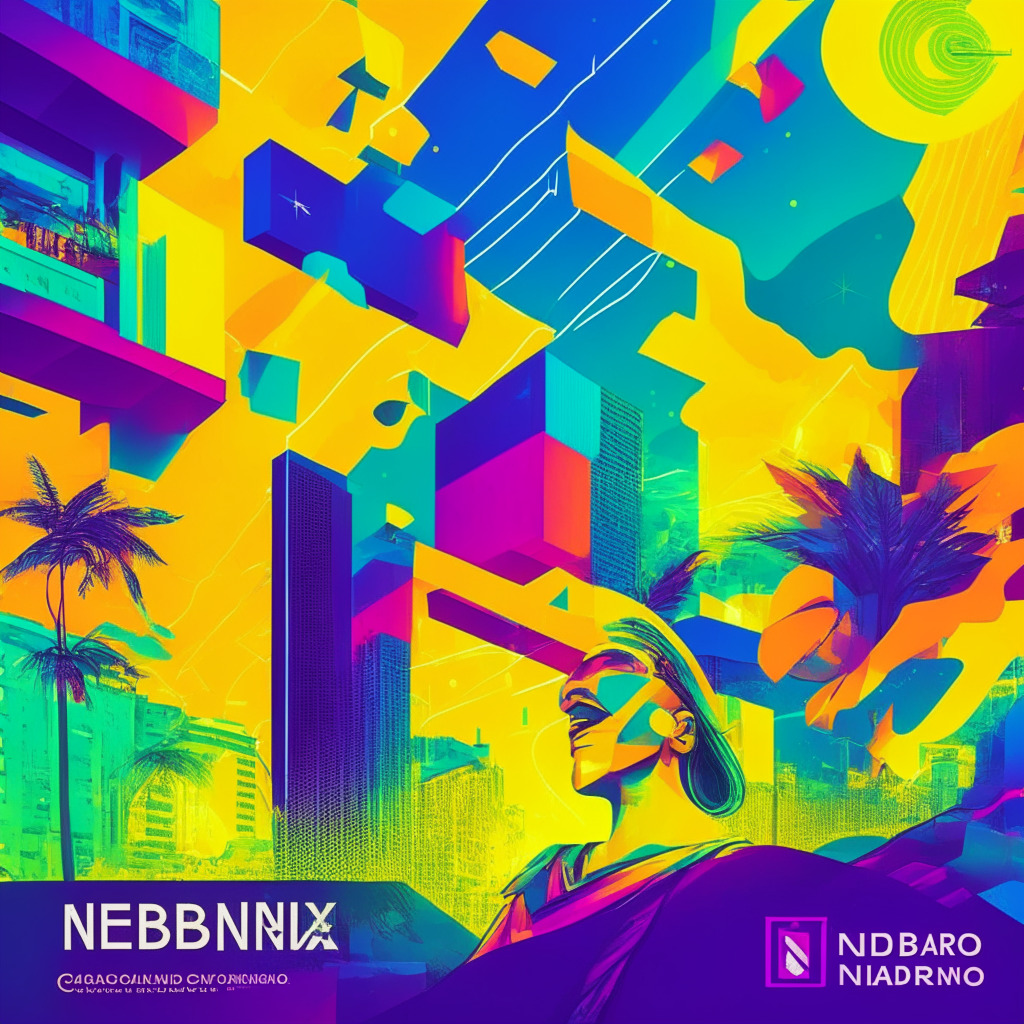“Brazil’s Central Bank recently introduced its central bank digital currency, Drex. However, concerns are raised by the currency’s potential for central authority interference, alongside questions about the movement of assets of popular cryptos following the collapse of Silvergate Bank. Advocates, meanwhile, hail the currency’s potential to improve Brazil’s banking sector.”
Search Results for: Central Bank of Brazil
Navigating the Crypto Regulatory Landscape: Embracing Innovation or Stalling Progress in Brazil?
Brazil’s Comissão de Valores Mobiliários (CVM) has announced plans to initiate a second regulatory sandbox focusing on tokenization, set to start in 2024. The sandbox will allow companies to test products or ideas under relaxed regulations, potentially in sectors like agribusiness and Environmental, Social, and Governance.
Brazil’s Blockchain Revolution: Tokenizing National Identity with Cause and Concern
Brazil is planning to tokenize the identities of over 214 million citizens through digital documents, using blockchain technology. This initiative, aiming for complete coverage by November 6, promises enhanced security against fraud and improved inter-government collaboration and service accessibility.
Blockchain Revolution in Brazil: National ID & the Prospects and Predicaments of Drex
Brazil plans to incorporate a blockchain-based system for identity verification across three states, with potential to combat crime, streamline services, and protect individual data. However, concerns remain regarding the balance of enhanced security and potential misuse risks.
Crypto Surge in Brazil: Rising Regulation, Dominance of Stablecoins, and Controversy over CBDC
Brazil, witnessing a 44.2% growth in cryptocurrency adoption between January and August 2023, expresses concerns on potential links to tax evasion. Banco Central do Brasil is intensifying regulation and planning its own central bank digital currency (CBDC), raising discussions on digital financial safety.
Navigating Uncharted Waters: Celsius and BlockFi’s Resolutions, Regulation Challenges & Brazil’s Digital Currency Leap
“Celsius Network’s valuation advisor, Stout Risius Ross, confirmed the accuracy of assets and liabilities’ valuation, setting a precedent in the crypto market. This follows a resolution that aligns cryptocurrency systems with traditional finance practices, demonstrating the maturing nature of the cryptocurrency sector.”
Tightening the Reins: How Brazil’s Crypto Regulation Impacts Market Growth and Sustainability
The steep rise of cryptocurrency imports in Brazil prompted the Central Bank to tighten regulations. While these measures are necessary for investor protection, questions arise whether this can hinder the market’s growth. Regulators globally struggle to strike a balance between market growth and sufficient regulation.
Ramp Network’s Integration of Pix: A Boon or Bane for Brazilian Crypto Landscape?
“Crypto startup, Ramp Network, has integrated Pix, a popular payment method initiated by the Central Bank of Brazil, aiming to ease the onboarding process into the cryptosphere for businesses and individuals across Brazil. This could create a significant shift in Brazil’s cryptocurrency environment.”
Bridging Crypto and Traditional Finance: Ramp Network’s Adoption of Brazil’s Pix System
Ramp Network, a start-up providing payment infrastructure, adopted the Pix payment system of the Brazilian Central Bank fostering its penetration into South America. This integration not only increases accessibility to cryptocurrencies but also ignites market volatility concerns due to regulatory uncertainties.
Financial Misconduct and Crypto: The Sam Bankman-Fried Story Paralleling Global Cryptocurrency Concerns
Sam Bankman-Fried faces allegations of fraud and money laundering involving his crypto exchange, FTX. Meanwhile, the Bank of International Settlements and financial stability directors raise concerns about crypto’s potential to enhance financial risks in underdeveloped economies. Balancing financial stability with fostering innovation remains a critical challenge.
Banking on the Digital Ruble: Heralding a New Era or Stoking Controversy?
The Russian Central Bank’s proposal classifies the digital ruble, as a “high-quality liquid asset”. This could usher a dramatic reconfiguration of how financial institutions perceive and maintain liquid assets, potentially revolutionizing cross-border payment methods. However, this shift is viewed with apprehension among commercial banks.
Unraveling Brazil’s Crypto Tax Reform: A Blessing or Curse for the Digital Age?
Brazil’s Congress is considering a bill to tax cryptocurrency as “financial assets”, specifically those held by Brazilians overseas. If passed, the legislation would level the tax field between crypto and traditional assets, potentially benefiting local exchanges. The bill might attract greater activity to Brazil’s national crypto exchanges and global players to establish local offices. However, there are concerns that the increased taxation could hamper the growth of the sector or deter foreign investment.
Balancing Act: Decentralization, Mining Centralization, and the Future of Blockchain Technology
“This article explores the potential pitfalls of Bitcoin’s proof-of-work system, highlighting mining centralization and the economic imbalance it can cause. It encourages a shift towards alternative consensus mechanisms to align incentives between miners and users, maintaining blockchain’s promise of financial democracy.”
Bridging the Gap: Gnosis Fuses Decentralized Payments with Visa’s Traditional Channels
Gnosis is pioneering the integration of decentralized payment systems with conventional channels, launching products allowing users to spend their digital assets from wallets via Visa’s system. Gnosis Pay and Gnosis Card, a self-funded Visa debit card connected to an on-chain wallet, aim to simplify the movement of crypto-assets and reinforce the Gnosis blockchain ecosystem.
Unveiling the Dark Side of CBDCs: Financial Autonomy vs. Government Oversight in Brazilian Case Study
“The Brazilian central bank’s digital currency project may allow the government unsolicited control over citizens’ financial assets. Reverse engineering of the pilot project’s code, revealed capacity to freeze or adjust linked account balances, provoking concerns regarding the future of financial autonomy in Brazil.”
Brazil’s CBDC Real Digital: Potential Threat or Boon for Transparency and Efficiency?
“Blockchain developer, Pedro Magalhães, reverse-engineered the source code of Brazil’s pilot Central Bank Digital Currency (CBDC), Real Digital, and found coding with potential to freeze or reduce funds. Concerns rise among crypto enthusiasts about CBDCs potentially infringing on financial freedom and privacy.”
Brazil’s Digital Real Rollout: Transparency Questions and Potential Breakthroughs
Brazil’s Central Bank has archived central bank digital currency (CBDC) related documents on GitHub, providing insight into the core aspects of the digital real. However, the document’s incompleteness sparked requests for the source code, which is promised to be made public after necessary audits. The bank plans to use the Hyperledger Besu blockchain and aims to introduce the digital token by 2024.
Brazil’s Digital Real Pilot Project: Balancing Innovation and Privacy Concerns
Brazil’s central bank authorizes Mercado Bitcoin, the largest local crypto exchange, to join a pilot project for the digital real, with plans to test CBDC issuance and treasury bills. The project highlights the importance of innovation, trust, and compliance in the digital assets ecosystem, while addressing privacy and security concerns.
Crypto Card Adoption Surges in Brazil: Daily Use, Pros, Cons, & Mainstream Challenges
Cryptocurrency credit card adoption is surging in Brazil, with users increasingly spending digital tokens on daily expenses. Crypto cards, such as Binance Card, are encouraging mainstream adoption by integrating digital currencies into everyday payments like groceries and dining. This trend reflects the growing interest in cryptocurrencies across Latin America, driven partly by fiat inflation concerns.
BRZ Stablecoin: Gateway to Financial Inclusion or a Tool for the Elite in Brazil and Argentina?
Thiago Cesar’s Transfero offers BRZ, the first stablecoin pegged to the Brazilian real, with the potential to transform the financial markets in Brazil and Argentina. Transfero addresses issues like asset protection and international remittance, but critics question if it promotes greater financial inclusion or benefits a select few.
Brazil’s Crypto Market Milestone: Mercado Bitcoin’s License Sparks Growth and Regulation Debate
Brazil’s cryptocurrency exchange Mercado Bitcoin received a payment provider license, allowing its subsidiary, MB Pay, to offer digital banking services, such as investing in digital fixed income, staking, and financial transactions using crypto assets. This significant milestone potentially boosts crypto adoption in Brazil and raises questions about future regulation and challenges.
Brazilian Crypto Exchange Milestone: What It Means for the Industry and Emerging Challenges
Brazil’s largest crypto exchange, Mercado Bitcoin, has been granted a license by the country’s central bank as a payment institution, paving the way for a more integrated experience and business expansion. This development signals a potential shift towards broader acceptance and regulation, with plans to introduce a crypto payments card and offer a range of financial services combining crypto and traditional financial options.
Bank of Japan’s CBDC Pilot: Global Trends and Privacy Concerns Clash
The Bank of Japan’s CBDC initiative report reveals 11 countries have introduced a central bank digital currency, while 18 others are in the pilot stages. Amid growing global interest, concerns about privacy and regulatory challenges persist as nations explore CBDCs’ potential in the future of finance.
Brazil: A Land of Opportunity for Blockchain Innovators Solving Real-World Issues
Brazil offers excellent opportunities for blockchain and cryptocurrency innovation to tackle challenges like inflation, lack of credit, and unequal financial access. With favorable regulation and growing demand for decentralized alternatives, it’s an ideal setting for foreign entrepreneurs and developers to contribute and drive significant value creation.
Brazil’s CBDC Pilot Project: Exploring Pros, Cons, and Potential Conflicts
The Central Bank of Brazil prepares for its CBDC pilot project with participation from global companies like Visa and Microsoft. The digital real platform, set to kick off in mid-June 2023, focuses on privacy and programmability, while addressing challenges like financial privacy, transaction volumes, and potential monopolies in the ecosystem.
Brazil’s CBDC Pilot Project: Nubank and Crypto Firms Invited, Changing the Financial Landscape
The Brazilian Central Bank has selected crypto-friendly neobank Nubank among other firms for its central bank digital currency (CBDC) pilot project. The move signals a shift in attitude and possible recognition of incorporating crypto-related businesses in the development of a CBDC.
Digital Real Pilot: Brazil’s CBDC Future & Challenges with Diverse Stakeholders
The Central Bank of Brazil has selected 14 prestigious institutions, including private banks, public banks, and multinational corporations, for its digital real pilot program, marking a significant step forward in the evolution of digital currencies. This diverse approach aims to cover a wide scope of potential use cases for the nation’s central bank digital currency (CBDC).
Binance’s Latam Gateway License in Brazil: Opportunities and Regulatory Challenges
Latam Gateway, a payment provider for Binance in Brazil, recently received a license to operate as a payment institution and electronic money issuer. As the collaboration between Latam Gateway and Binance grows, Brazil faces challenges in implementing proper oversight and consumer protection measures while fostering innovation in the evolving crypto market.
Brazil’s CBDC Pilot: Excluding Crypto Firms Hinders Innovation and Collaboration
The Central Bank of Brazil’s exclusion of crypto-related companies from their CBDC pilot has raised concerns about favoritism towards traditional financial institutions. Critics argue that this decision suppresses potential innovation and collaboration between emerging and established financial systems, hindering integration of digital currencies in the global financial landscape.
Cryptocurrency Developments: Binance Licenses, Coinbase Buybacks, and More Unraveled
“Binance receives licenses from Central Reserve Bank and National Commission of Digital Assets in El Salvador fostering financial inclusion. Coinbase proposes buying back $150m of its bonds eliciting mixed investor sentiment. Bitstamp seeks to expand operations, reminding of crypto investment risks.”
XRP’s Surge Amid Legal Battles and CBDC Adoption: Boon or Bane for Crypto’s Future?
XRP’s recent surge is due to positive legal developments, global expansion efforts, and Central Bank Digital Currency (CBDC) adoption. Ripple’s involvement in CBDC projects could signal a bright future, provided it overcomes challenges posed by its ongoing legal battle with the SEC.
Tranglo and Ripple’s ODL Revolution: Milestones, Expansion, and Market Risks
Tranglo, a partner of Ripple, recently announced reaching over $1 billion in On-Demand Liquidity (ODL) transactions, after a successful partnership aimed at increasing customer demand in Asia and expanding ODL services. Ripple’s ODL service has gained recognition and adoption across various regions, revolutionizing cross-border transactions and indicating a promising future for both companies and the wider crypto community.































